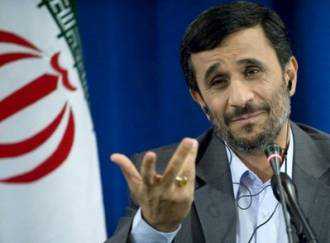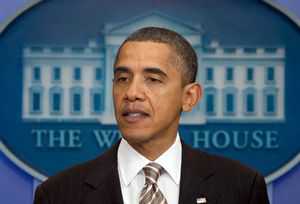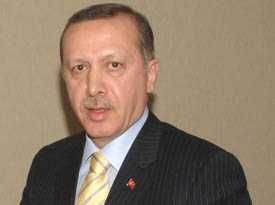 U.S. — President Barack Obama (R) meets with Turkish Prime Minister Recep Tayyip Erdogan in Washington, DC, 07Dec2009
U.S. — President Barack Obama (R) meets with Turkish Prime Minister Recep Tayyip Erdogan in Washington, DC, 07Dec2009Turkey’s Prime Minister Recep Tayyip Erdogan remained adamant in linking the normalization of Turkish-Armenian relations with a resolution of the Nagorno-Karabakh conflict after meeting with U.S. President Barack Obama in Washington on Monday.
“I also congratulated the Prime Minister on some courageous steps that he has taken around the issue of normalizing Turkish-Armenian relations, and encouraged him to continue to move forward along this path,” he told journalists after the talks.
In a recent letter to a prominent Armenian-American leader, Obama reiterated Washington’s position that the normalization process should be completed “without preconditions and within a reasonable timeframe.”
Erdogan made clear, however, that a Karabakh settlement remains “important in the context of Turkish-Armenian relations” and indicated that he and Obama looked at their future through the prism of the Armenian-Azerbaijani dispute. “We have discussed the Minsk Group and what the Minsk Group can do — the United States, Russia, and France — to add more impetus to that [Karabakh] process,” he said.

Turkey — US President Barack Obama meets with Turkish Prime Minister Recep Tayyip Erdogan in Ankara, 06Apr2009
“I can say that to have more impetus in the Minsk process is going to have a very positive impact on the overall process, because the normalization process between Turkey and Armenia is very much related to these issues,” added Erdogan.
The Turkish premier was even more explicit about the Karabakh linkage in an interview with Azerbaijan’s ANS television given ahead of his visit to the United States. “We have declared to U.S. representatives right from the beginning that if you want to resolve the Turkish Armenian issue you should also resolve the Karabakh conflict,” he said. “Otherwise, you will fail to resolve either.”
Turkish Foreign Minister Ahmet Davutoglu similarly stressed the importance of Karabakh peace for Turkish-Armenian reconciliation when he addressed a high-level meeting of the Organization for Security and Cooperation in Europe in Athens last week. Armenian leaders have implicitly threatened to walk away from the recently signed fence-mending agreements between the two nations if Ankara fails to implement them by next spring.
In the days leading up to Erdogan’s trip to Washington, the leading Armenian-American advocacy groups called on Obama to make good on his campaign pledges to recognize the Armenian genocide and press the Turkish government to do the same. The Armenian National Committee of America (ANCA) urged members and supporters to petition the White House through phone calls, letters, and social networking websites.
In a weekend statement, the ANCA, which is highly critical of the Turkish-Armenian agreements, said Ankara is successfully exploiting the rapprochement process to keep Obama from describing the 1915 mass killings of Armenians in the Ottoman Empire as genocide. “It’s patently clear that Turkey has in fact imposed preconditions, will not act in a reasonable time-frame, and, more broadly, views this entire process as simply a way to extend U.S. complicity in Turkey’s denials from one April 24th to the next,” the group’s executive director, Aram Hamparian, was quoted as saying.
The more moderate Armenian Assembly of America, which has largely endorsed the Turkish-Armenian “protocols,” also appealed to Obama over the weekend. The Assembly said his upcoming meeting with Erdogan “represents an important opportunity to hold the Turkish government accountable with respect to its international obligations to lift its blockade of Armenia and normalize relations without preconditions, as well as come to terms with its genocidal past.”
Speaking in Washington on Monday, Erdogan stuck to the official Turkish line that the World War One-era killings of Ottoman Armenian did not constitute genocide. According to the official Anatolia news agency, he also pointed to his 2005 proposal to set up a Turkish-Armenian commission of historians that would look into the events of 1915.
One of the two “protocols” signed in Zurich in October is understood to envisage the establishment of such a panel.






